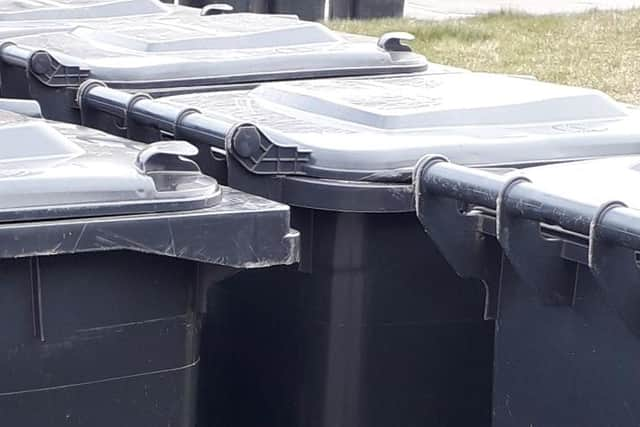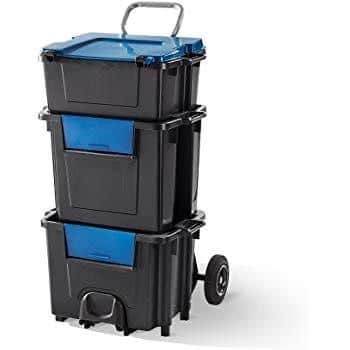Soft plastics packaging recycling project to involve 200 Glengormley households
and live on Freeview channel 276
Residents in the Richmond/Abernethy area are to be asked to get involved in a soft plastics packaging pilot through their kerbside wheelie box collection.
The initiative is to be operated by Bryson Recycling for a six-month period starting in June.
Advertisement
Hide AdAdvertisement
Hide AdParticipants will be provided with information on the type of soft plastic materials that can be recycled such as bread bags and crisp packets.


In November, a soft plastics recycling bin was made available at an eco Christmas market held in Ballyclare Town Hall by local environmental group, the County Antrim Countryside Custodians for the collection of food wrappers.
A report to Antrim and Newtownabbey Borough Council says that the findings from this scheme in Glengormley will help shape future collection arrangements.
Bryson Recycling says that one fifth of households in Northern Ireland have plastics, glass, paper, cans and textiles collected separately on a weekly basis which it says saves local authorities £12m annually.
Advertisement
Hide AdAdvertisement
Hide AdIt has also stated: “The reprocessing industry in Northern Ireland currently contributes over £100m a year to the local economy but they need more locally sourced quality recyclables to meet current business demand.”


Eric Randall, Director, at Bryson Recycling says: “We believe a single collection system is achievable and will help us reach ambitious recycling targets alongside the best environmental and social outcomes. The recycling industry contributes significantly to our economy and this model offers the potential to grow businesses and the economy further, whilst playing a vital role in helping the environment.
“Currently, around 50% of our waste ends up in a landfill and 65% of our recyclables are exported from Northern Ireland. Local businesses have no choice but to ship in quality recycled waste to Northern Ireland to meet the demands of their business.
“A simple, consistent approach NI wide would enable these manufacturers to access high quality local materials that in turn would benefit the economy, cut carbon emissions and generate employment.”
Advertisement
Hide AdAdvertisement
Hide AdMeanwhile, Antrim and Newtownabbey is to submit a response to a consultation on the introduction of a mandatory digital waste tracking system supported by DAERA (Department of Agriculture, Environment and Rural Affairs).
A report to the borough council’s Operations Committee states: “Council believes that controlled waste managed by local authorities is already managed and reported in a comprehensive manner and by creating
these proposed restrictions on residents and council commercial waste
businesses using our services, it will result in significant adverse financial and
Advertisement
Hide AdAdvertisement
Hide Adresource implications and potentially lead to further illegal dumping of waste;
It is suggested that the proposed system would also “impose significant financial and resource burdens on councils.
“Introducing the system to classify waste to enable tracking to waste
producers, such as small to medium businesses, will be expensive,
Advertisement
Hide AdAdvertisement
Hide Adcomplex to use and may not result in the Government’s intended aim
of a better regulated waste industry.”
The committee was told previously that the amount of waste being sent from the borough to landfill has halved during the past ten years. It is expected that the local authority’s Zero Waste Strategy would enable almost 40,000 tonnes of rubbish to be diverted from landfill.
The counci’s Zero Waste Strategy is being developed as part of the council’s Climate Change Action Plan.
Antrim and Newtownabbey has applied to the Department of Agriculture, Environment and Rural Affairs (DAERA) for funding to roll out triple stack boxes in Antrim.
Advertisement
Hide AdAdvertisement
Hide AdHowever, DAERA has said that it will no longer be providing 100% of the capital costs. It is understood that councils had been expecting the full costs to be met by the Department.
Michelle Weir, Local Democracy Reporter